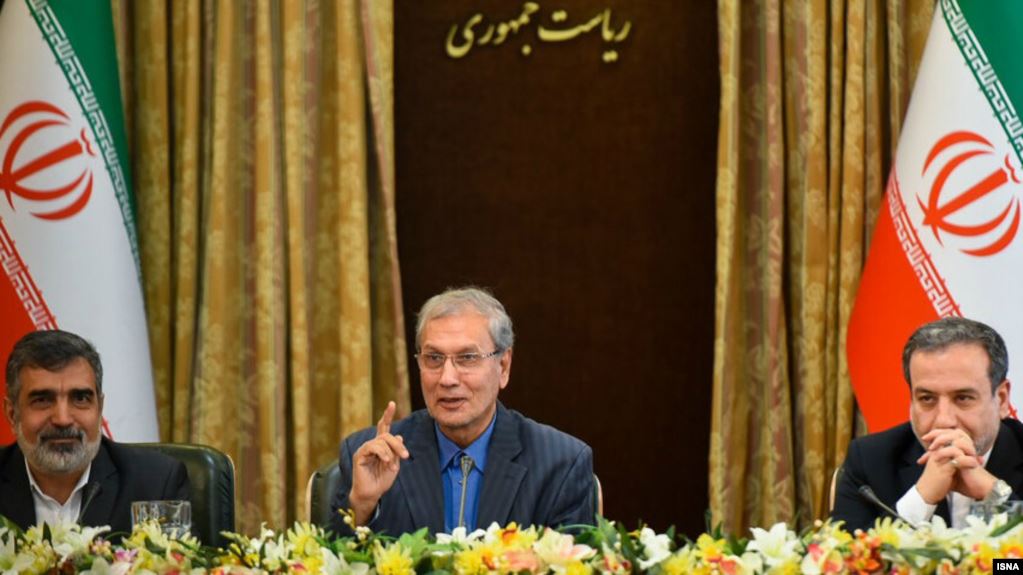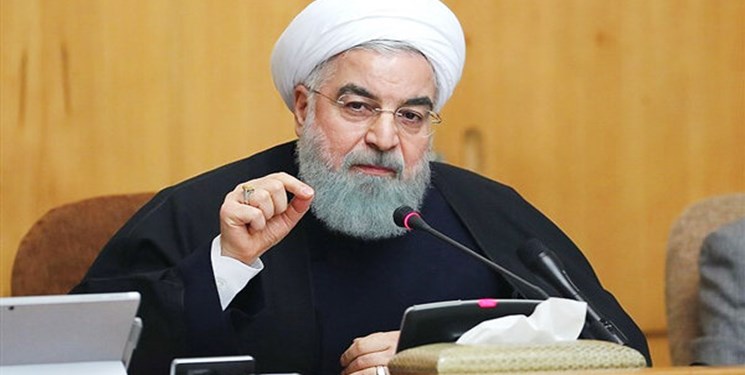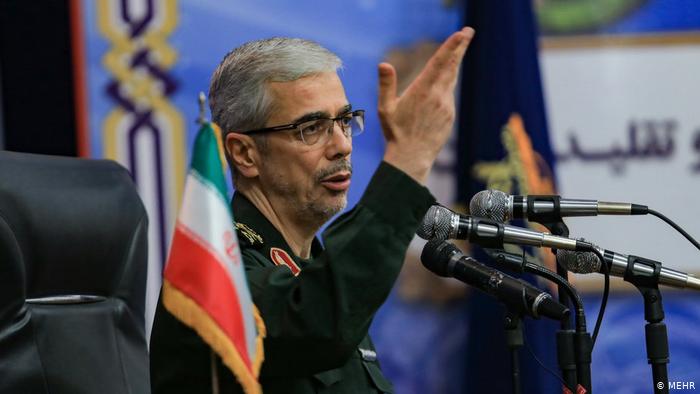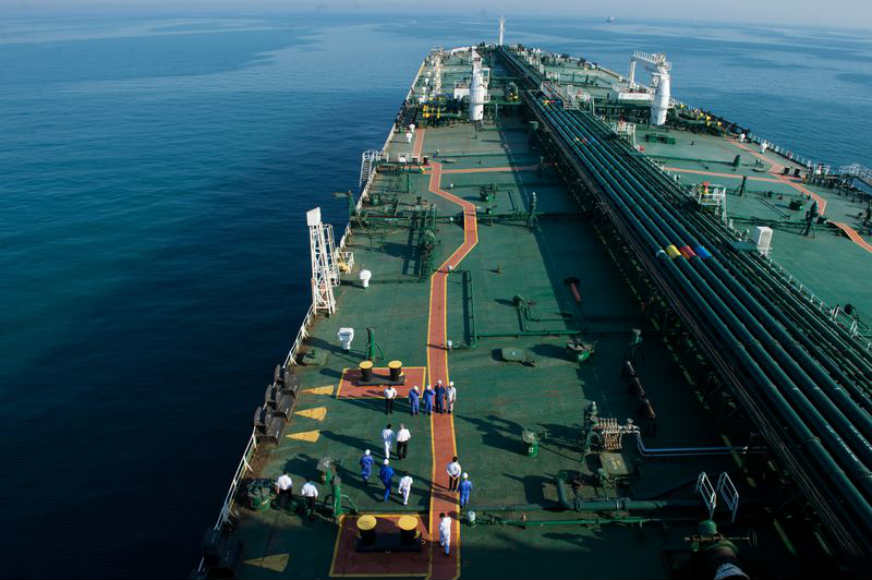
Don’t keep the pirates waiting!
The editorial of the Hardline Kayhan newspaper suggests that Iran must respond to the detention of its supertanker by British marines in Gibraltar.
It can be said with certainty that the British government, by detaining Iran’s supertanker, has wanted to challenge Iran’s military power, in order to retaliate for the downing of the US drone by Iran. Iran’s delay in responding to this piracy can help Britain in realizing its own propaganda goal.
Britain knows that it cannot detain Iran’s supertanker for a long time, and it knows very well that Iran can retaliate as its hands are not tied. However, if Iran doesn’t respond promptly, this will imply that Britain was able to seize Iran’s supertanker and release it, without facing any response from Iran.
To preserve Iran’s authority, this action must be responded to, showing to the world that Iran will not permit any invasion or attack to go unanswered.
It might be said that during the past few days, no British vessels have passed through the Strait of Hormuz or approached Iran’s territorial waters. Even if true, this will not change the equation to the advantage of Iran. The point will remain that Iran has not responded to the illegal detention of its supertanker.
This is true unless Iran announces that the Strait of Hormuz is closed to British commercial ships and oil tankers, and any British vessels approaching the Strait of Hormuz and Iran’s territorial waters will be detained.
As such, some action must be taken before Iran’s supertanker is released, not foregoing the opportunity to retaliate against British piracy.
Kayhan
Unreal statistics
The recent statistics published by the Iranian government claim an improvement in the unemployment rate. The editorial of Jahan Sanat calls them unreliable, as they do not reflect the realities experienced by the Iranian people.
An improvement in the unemployment rate in this year’s spring, compared to the same period last year, along with alarming statistics regarding a significant decrease in the economic growth rate, raises this question: in which economic sector have policy-makers been able to create jobs? As it is, no such improvement can be seen in the lives of the people.
The unemployment rate being lowered and no improvement in the lives of the people shows that either the people do not understand their own lives, or the published statistics are questionable. The facts show that at least during the last year, no new jobs were added, and even in some cases, we have witnessed job losses. The new statistics indicating an improvement in the unemployment rate are questionable, and the people no longer trust the statistics issued by the government.
During the last year, because of economic growth slowing down, the unemployment rate increased and people lost their jobs. This can lead one to question the reliability of the new statistics showing an improvement in the unemployment rate.
Because of a severe drop in the economic growth rate in all economic fields including the agricultural, service, and industrial sectors, the inflation rate skyrocketed, with food prices rising to an unprecedented level, a historical record. This resulted in a tangible increase in the Misery Index for last year, during which we witnessed an increase in economic misery.
A substantial drop in the GDP in 2018 — as highlighted by negative statistics in different economic fields — proves that the new statistics published by the government indicating an improvement in the unemployment rate are not acceptable. This reality will increase the public’s distrust towards the statistics published by the government.
Jahan Sanat – July 9
Kayhan’s dreams come true!
The editorial of Hamdeli explains how the recent move by Rouhani’s government in the nuclear deal fulfills the wishes of the Iranian hardliners. On July 7, the Iranian government announced it would no longer observe the limit set in the nuclear deal for uranium enrichment.
Eventually, 60 days after the ultimatum given by the Iranian government to the European signatories of the nuclear deal (JCPOA), the second step in Iran reducing its obligations in the JCPOA was taken. This took place while Hassan Rouhani, in his last set of talks with the European signatories to the deal, had tried to show how the Europeans could stop Iran from taking this step.
There is no doubt that many domestic and foreign analysts, after the US unilateral withdrawal from the JCPOA, would give Rouhani’s government the right to reciprocate the US move by reducing its obligations in the JCPOA. However, on the other hand, many experts have tried to convince Rouhani’s government to show more restraint.
Rouhani is not happy to see the total failure of the JCPOA, as he views it as evidence of his government’s success. The hardliners close to Kayhan newspaper are happy with the government’s measures more than anybody else, as they have wanted the JCPOA to collapse from the very beginning. It is as if a part of their dream has come true.
The hardliners close to Kayhan do not think this is enough and are still pushing Rouhani’s government to take more steps to pull out of the deal completely and are asking Rouhani to go back to the situation before the JCPOA. They do know that pre-JCPOA Iran was sanctioned not only by the United States but also by the international community and the European Union, and the situation was heading towards war.
Even though the Iranian government is taking these steps to persuade the Europeans to preserve the JCPOA, Iran’s harsh measures in reducing its commitments in the deal can only make the wishes of hardliners come true.
Hamdeli – July 8
This door cannot be forced to open!
The editorial of Ebtekar focuses on why the current tough economic issues in Iran are the result of wrong decisions, particularly in foreign policy.
The Tehran Friday Prayer leader told the Iranian officials out of compassion recently: “Your government is called the Government of Prudence and Hope and you say you have the key for opening locked doors. So open the doors with your key, and if they don’t open with it, then break them open.”
It is understood that the economy has certain variables, and it takes more than issuing orders and compassionate advice to fix it. The poor are in dire conditions and the views of experts must be used to resolve the situation.
In recent years haven’t the experts been talking about how politics influences the country’s economy? Can the economic issues be only attributed to the poor performance of the government and the parliament? as a matter of fact, beating the drums of war and insisting on a radical foreign policy has harmed the Iranian economy in recent years.
When none of the political currents are ready to make political sacrifices in these tough political conditions, how can the economic issues be resolved? There is no doubt that the economic problems in the country are rooted in poor integrated management, and some of the problems are even related to the executive branch itself. However, corruption and rent-seeking have been serious issues in Iran for years and cannot be solved by only one branch.
Even though the government talks of transparency and has taken some small steps in this regard, have the other branches taken any steps to resolve this issue? reforming the banking and tax systems are the biggest economic issues in the country, but without connecting the banking system to the world, there is no hope for their improvement.
It seems that the economic problems started when Iranian statesmen tried to use force to open the doors, rather than policies.
Ebtekar – July 7

Iran increases its level of uranium enrichment; Europeans deeply concerned

The spokesperson for the Iranian government announced Iran would no longer be committed to enriching uranium less than 3.67 percent. “We’ll exceed 3.67 uranium enrichment,” said Ali Rabiei, “and the enrichment level would be set according to our needs.”
Iran’s Deputy Foreign Ministry Abbas Araghchi also announced “lack of adherence” to uranium enrichment levels in a press conference today. Araghchi added Iran’s reduction of its commitments might lead to its withdrawal from the Joint Comprehensive Plan of Action (JCPOA).
Abbas Araghchi also contended that if redesigning the Arak heavy water reactor was not completed as mentioned in the JCPOA, this reactor would return to its previous state.
Meanwhile, Behrouz Kamalvandi, Spokesperson for the Atomic Energy Organization of Iran (AEOI), maintained Iran would increase its uranium enrichment to 5 percent for the time being. He added this amount might also rise “according to the order we receive.” Kamalvandi continued by saying that we do not need to enrich uranium for Tehran’s reactor at present, “and if we do, we’ll provide it.”
Iran announced on July 1 that its uranium stockpile has exceeded the 300-kilogram limit.
Under the Joint Comprehensive Plan of Action (JCPOA), Iran was allowed to produce low-enriched uranium with a 300-kilogram limit. It could also produce heavy water with a stock capped around 130 tons. The excess amounts were supposed to be sent out of the country for sale– under the nuclear deal.
The European sides in the nuclear deal have expressed their “deep concern” over Iran increasing the level of its uranium enrichment, calling for an emergency meeting of the JCPOA commission to discuss this issue.
The Foreign Ministers of Britain, France, and Germany, along with the head of the European Union’s Foreign Affairs, issued a joint statement in this regard, expressing their concern over Iran breaching its obligations within the JCPOA. Iran is asked by the Europeans not to take any further steps that will undermine the JCPOA and to reverse the measures that are not consistent with the nuclear deal.
Iran has given 60 days – until September – to the European countries to fulfill their obligations in the nuclear deal, or else it will increase the level of uranium enrichment to 20%.
Radio Farda
The danger of nuclear disaster in Iran with it launching the Arak reactor

The Iranian President Hassan Rouhani said in a cabinet meeting: “On July 7, Iran’s level of enrichment will not be 3.67% any longer; this obligation will stop, and we will raise the level of enrichment as much as we need to.” He added: “From July 7 onwards if the other sides do not abide by their commitments, the Arak reactor will return to its previous state, which they [the Europeans] said is dangerous and can produce plutonium.”
Rouhani’s remarks come in the midst of serious skepticism regarding the technical conditions of the Arak nuclear power plant or the possibility of relaunching it. Iranian nuclear officials have admitted that there were problems with this facility before signing the nuclear deal.
Ali Akbar Salehi, head of Iran’s Atomic Energy Organization, said in a TV interview that the Arak nuclear power plant had serious problems before the nuclear deal. Meanwhile, the Spokesperson of Iran’s Atomic Agency Behrooz Kamalvandi too admitted that the Arak reactor belonged to the old generation of reactors.
Thirty-three years ago, the biggest nuclear disaster took place in the former Soviet Russia. The Chernobyl power plant exploded. After the explosion, the area surrounding the power plant was polluted with radioactive material, and the clouds took radioactive pollution to a large part of Europe.
The Arak heavy-water reactor has been designed according to the standards of the old generation of reactors. The fact that these days Iran has increased its own nuclear activity to threaten Europe and America is alarming to the Iranian people and to the neighboring countries. If the Arak reactor becomes active again, the threat is not posed to western countries, but to the people of Iran.
Zeitoon
Iranian military officials threaten to retaliate against the detention of Iran’s supertanker

On July 4, Britain detained Iran’s supertanker, Grace 1, in Gibraltar while carrying crude oil to Syria, in breach of the European Union sanctions against Bashar Assad’s government. Forty-two British Royal Marines took part in seizing the supertanker, and 28 crew members were interrogated by Gibraltar officials.
The Iranian Foreign Ministry, on the other hand, called the seizing of Iran’s supertanker “piracy”. Hours later, the British Ambassador to Tehran was summoned to Iran’s Foreign Ministry in this regard.
The US National Security Advisor John Bolton reacted to the news, tweeting: “Excellent news: UK has detained the supertanker Grace 1 laden with Iranian oil bound for Syria in violation of EU sanctions.”
The Iranian President Hassan Rouhani, along with military officials, warned Britain of consequences. Rouhani said the detention of Iran’s supertanker was “wrong”, and he told British officials that “you are the initiators of insecurity and you will see its consequences.”
Mohsen Rezaee, Secretary to Iran’s Expediency Council, said that Iran’s armed forces should retaliate by detaining a British oil tanker. He tweeted: “If Britain doesn’t release the Iranian oil tanker, it is the duty of the institutions in charge to retaliate and detain a British tanker.”
The Iranian Defense Minister Brigadier-General Amir Hatami said the seizing of Iran’s oil tanker was against “international laws” and considered it a kind of “piracy”, saying, “Certainly this kind of piracy won’t be tolerated and won’t go unanswered”.
Hatami wasn’t the only military official to threaten Britain with retaliation. Iran’s General Chief of Staff of Armed Forces Mohammad Hossein Bagheri, too, asserted that the detention of the Iranian supertanker will not go, “unanswered” emphasizing that “at the right time and place, this act will be responded to”.
Bloomberg News reported that an oil tanker belonging to British Petroleum has anchored in Saudi waters in the Gulf “out of fear of being detained” by Iran, and will not move towards the Strait of Hormuz. British Petroleum officials are afraid that Iran might detain the British tankers in retaliation to Britain seizing Grace 1.
Meanwhile, the British Foreign Minister Jeremy Hunt defended the detention of Iran’s supertanker, saying, “Sanctions [against Syria] are put for some reasons and must be observed. The real solution for these problems is for Iran to stop its destabilizing activities in the Middle East.”
Deutche Welle
Radio Frada
Iran’s oil exports plummet to 182,000 bpd; oil traded for food, drugs, and past debts

Informed sources tell Kayhan London that from June 28 to July 7, Iran’s oil exports dropped to 182,000 barrels per day. In addition, this oil is traded for food, drugs, and pervious debts only.
Before the US secondary sanctions on November 5, 2018, Iran’s export reached more than 2 million bpd, but now under the US maximum pressure campaign, it has reached its lowest in the past three decades.
In a TV interview, the Iranian Oil Minister Bijan Zanganeh didn’t give any official statistics on Iran’s oil sales; instead, he hopelessly asserted: “It is difficult for me to announce the numbers regarding oil exports. If I say we are in a good condition, the Americans get upset and increase the pressure. If I say it is not good, people will get upset.”
The undeniable truth is that Iran’s revenues have decreased. Even though official statistics are not provided in this regard, here and there some cases are mentioned that give a sense of what is going on.
Two senior officials in Rouhani’s government, for instance, have spoken of a decrease of 62,000 billion tomans in the Iranian budget for this year. The government Spokesperson Ali Rabiee wrote in Iran daily that the budget revenue has dropped from 448,000 billion tomans to 386,000 billion tomans, which means that the government’s spending must be cut by 62,000 billion tomans this year.
It seems that because of a substantial drop in oil revenues, the Iranian government has been forced to adjust its revenue and spending in the budget. ISNA (Iranian Student News Agency) has reported that a drop in this year’s revenues has created problems for this year’s budget, forcing the government to cut the budget spending significantly.
Kayhan London
Radio Farda
